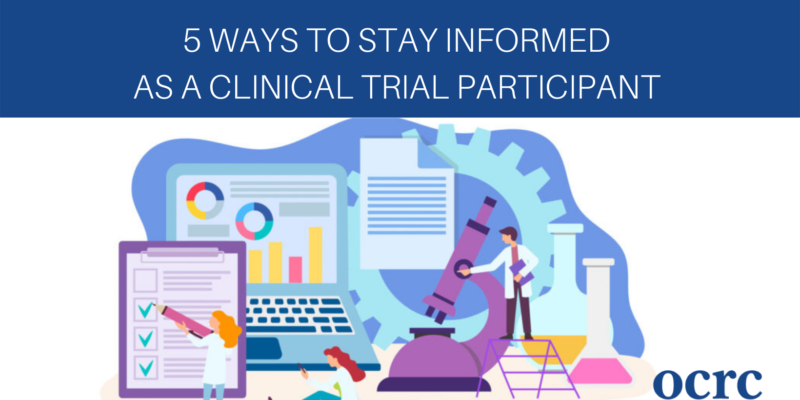
Without the scientific breakthroughs of clinical research, healthcare would not exist as it does today. In fact, every FDA-approved medication or treatment is the direct result of rigorous clinical trials and testing.
Of course, without the participation of clinical trial volunteers, clinical studies would not be possible. Every volunteer plays a significant role in helping improve the health of millions. If you’re interested in becoming a clinical trial participant, it’s important that you know exactly what it entails. Read on for five important ways to stay informed as a clinical trial participant.
In order to participate in a clinical study, you first need to meet the volunteer requirements, or inclusion criteria. Inclusion criteria are the factors that qualify someone to participate in a clinical trial, while disqualifying factors are referred to as exclusion criteria. Inclusion and exclusion criteria can include age, gender, diagnosis and medical history, and can vary according to each clinical trial.
It’s also important to understand whether you’re participating as a healthy volunteer or a patient volunteer. A healthy volunteer does not have any significant health problems related to the study in question, while a patient volunteer has a diagnosis or health problem directly related to the study. Both types of volunteers are crucial for a successful clinical study. Additionally, keep in mind that you may or may not be the recipient of a placebo.
Once it’s determined that you’re eligible for a specific clinical study, you must give consent—specifically, informed consent. Informed consent is a written agreement detailing the study goals and protocols, treatment procedures and schedules, and volunteer risks and benefits.
Make it a point to understand the expectations of you for the duration of the clinical study. For example, some studies may require that patients travel to research facilities. Others (such as virtual clinical trials) may require the patient to record data independently. It’s important to know whether you are willing and able to comply with the study expectations before you agree to participate.
While informed consent is given in the form of a written document, keep in mind that it is not a contract. In other words, you may opt to leave a clinical trial at any time, for any reason. (That said, we recommend talking to a doctor about any potential risks before deciding to abruptly end a given treatment.)
Through the Patient Bill of Rights, you have several rights including but not limited to:
The informed consent form you receive should detail all of your rights as a volunteer. If you have any doubts, remember that you always have the right to ask questions.
While you participate in a clinical study, it’s a good idea to keep all study details and documents on hand so you can reference them at any point.
Information to keep includes:
Clear communication with study participants is crucial for a successful study, so feel free to ask questions and seek clarification whenever necessary.
As mentioned above, you have the right to ask any questions about the study at any time, and to expect a clear answer.
Important questions to ask include:
Before you decide to participate in a clinical trial, it’s also a good idea to consult with your doctor to ensure the potential benefits outweigh the risks.
See if you qualify for one of OCRC’s current clinical studies: https://ocrc.net/current-studies/
